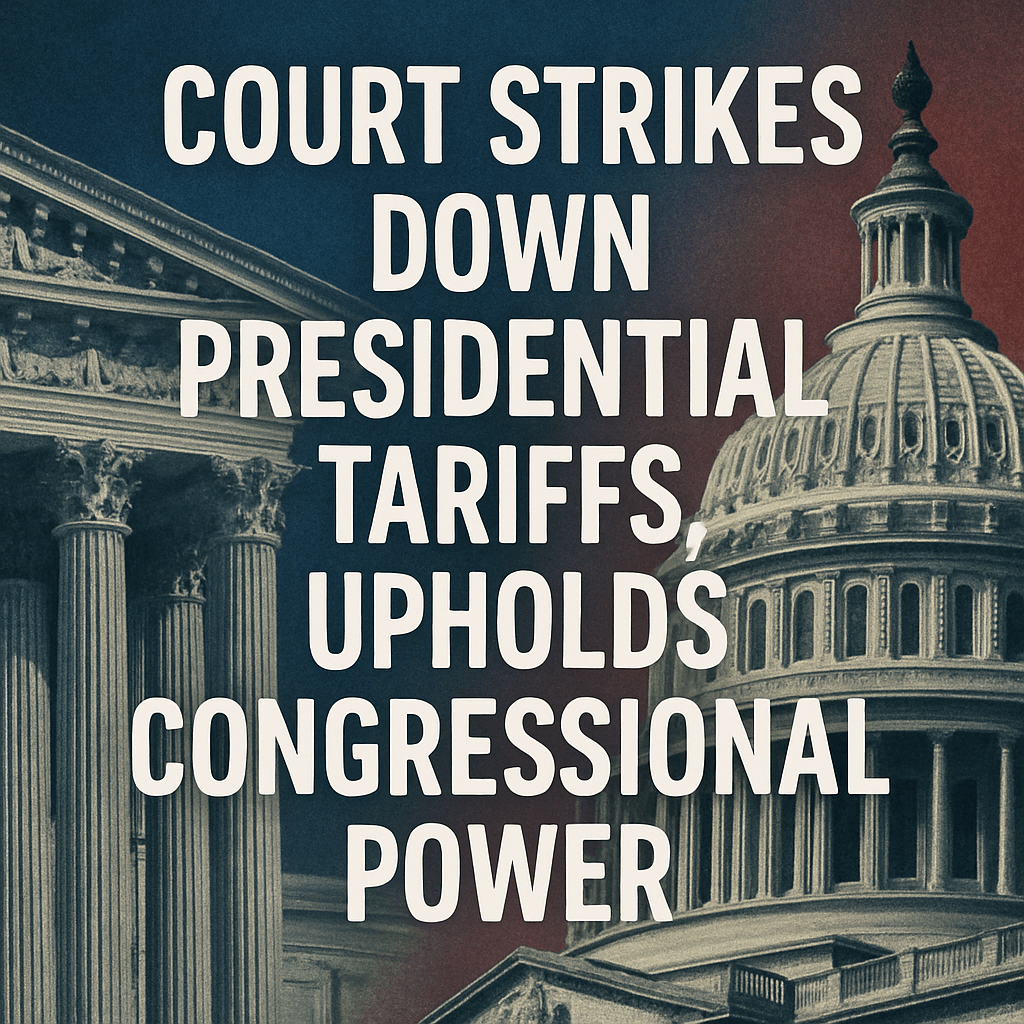Court Strikes Down Presidential Tariffs, Upholds Congressional Power

On Wednesday, the U.S. Court of International Trade issued a unanimous decision holding that the International Emergency Economic Powers Act of 1977 (IEEPA) does not grant the President authority to impose import duties. By striking down the so-called “Liberation Day” tariffs and fentanyl‐related duties on Canada, Mexico and China, the court reasserted Congress’s exclusive power to levy tariffs and underscored the constitutional separation of powers.
The Legal Foundation and Court’s Analysis
The decision rested on a detailed statutory and historical analysis of IEEPA (50 U.S.C. §§ 1701–1706). Key findings included:
- Statutory Scope: Section 1702 authorizes the president to regulate transactions in foreign exchange and property in which a foreign country has an interest, but does not explicitly mention tariffs or import duties.
- Congressional Intent: The court referenced debates from the 1977 enactment and the 1988 amendments, concluding that Congress intended IEEPA as a tool for targeted sanctions, not broad trade‐tax measures.
- Precedent and Structure: Applying principles from Chevron U.S.A. Inc. v. Natural Resources Defense Council and separation‐of‐powers doctrines, the court found no ambiguity in IEEPA’s language that would defer to executive interpretation.
“Allowing unilateral tariff imposition under IEEPA would effectively rewrite trade statutes passed by Congress,” the opinion stated, tracing the court’s origins to the Tariff Act of 1789 and its 1980 reestablishment by Congress.
Market Response and Economic Implications
Futures markets rallied almost immediately after the ruling. S&P 500 futures climbed 1.5%, the CBOE Volatility Index (VIX) dipped 8%, and the U.S. dollar weakened by 0.4% against a basket of major currencies. Analysts at UBS and Convera noted that removing the prospect of additional tariff-induced costs should reduce input‐price inflation and support investment in semiconductor, auto and agricultural supply chains.
Expert Commentary: Constitutional and Economic Perspectives
Constitutional scholars and economists weighed in:
- Prof. Gillian Metzger (Columbia Law) highlighted that the ruling preserves the nondelegation doctrine by preventing executive overreach.
- Jack Goldsmith (Harvard Law) commented that the decision may shape future emergency‐powers litigation, particularly around climate or cyber emergencies.
- Paul Donovan (UBS) warned of continued uncertainty: “An appeal is virtually certain, and the Supreme Court’s stance on executive emergency powers could tilt either way.”
Sectoral Impact and Supply‐Chain Adjustments
Companies are already recalibrating logistics and procurement plans. In the auto sector, major OEMs are reassessing North American steel imports. Semiconductor firms such as Nvidia and AMD forecast a more stable tariff environment, enabling multi-year contracts for advanced nodes.
In agricultural markets, soybean exporters to China expect relief from prior 25% duties, potentially lifting U.S. farmgate prices by 3–5%, according to USDA analysis.
Next Steps: Appeals and Legislative Responses
The Department of Justice filed a notice of appeal on Thursday, signaling that the case could reach the Supreme Court in the October 2025 term. Meanwhile, members of Congress from both parties have proposed amendments to IEEPA clarifying or restricting emergency trade powers. Legislation may move through the House Ways and Means Committee this summer.
Additional Developments
- Nvidia Beats Expectations: In Q2, Nvidia reported revenue of $18.8 billion, up 69% year-over-year, and projected Q3 revenue near $45 billion, driven by AI-accelerator demand.
- Section 232 Tariffs: Experts at Deutsche Bank note the administration might pivot to automotive and steel tariffs under Section 232 (Defense Production Act), though such measures face their own legal hurdles.